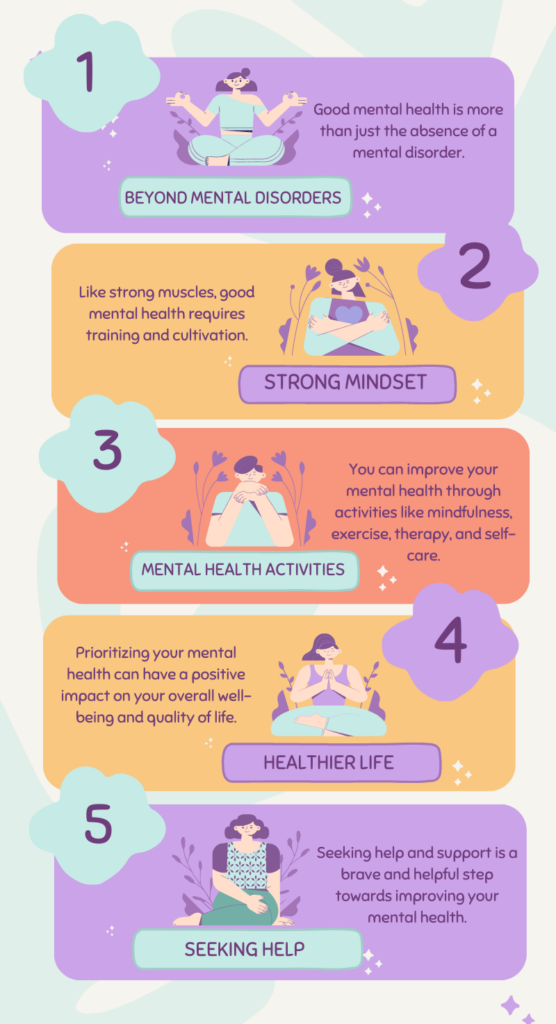Mental health is defined by the World Health Organization as a state of well-being in which the individual realizes his or her own abilities, can cope with the normal stresses of life, can work productively and fruitfully, and is able to make a contribution to his or her community (WHO, 2001).
Many persons believe that the absence of a mental disorder equates to the presence of mental health. This is not so.
Let me give an analogy.
Let’s say I am person who has never exercised or engaged in any physically demanding activity at any point in my life. Today, after deciding that I want reassurance that my muscles are strong, I visit the neurologist for a check.
The neurologist, during their physical examination, will test my muscles for tone and power. They will also, importantly, evaluate me for the presence of muscle weakness.
At the end of the examination, the neurologist informs me that I have no muscle weakness and both the tone and power in my muscles are good.
Does this mean that I can sign-up today to compete in a heavy weight lifting championship tomorrow?
Persons who exercise will give a resounding no as the answer to this question. To have good muscle strength, you must train your muscles. It is a long process that requires consistency and determination.
It is the same with mental health. For me to have strong (good) mental health, I must train myself to have it. I must cultivate it.
Mental health does not occur automatically and it is as equally as important as the other aspects of health.
This is highlighted by the WHO’s definition of health.
The WHO defines health as a state of (complete) physical, mental and social well-being and not merely the absence of disease or infirmity.
They are emphasizing that for you to be healthy, your body and mind must be healthy and you must also be able to make and maintain good relationships with people around you and maintain contact with them.
The complexity of health does not stop here.
Further, these different aspects of health interact with and influence each other.
Some mental illnesses, e.g., depression, can increase your risk of physical illnesses such as diabetes, heart disease, and stroke. Likewise, some physical illnesses increase your risk of mental illnesses.
For example, people with long term painful physical conditions are at risk for depression and anxiety. Depression and anxiety can in term affect your relationships with persons around you.
The cycle gets even bigger as some mental illnesses increase your risk for other mental illnesses. For example, persons with an anxiety disorder are at risk for substance misuse/substance use disorder.
We can go on and on with examples.
The bottom line is, if you want to be healthy, remember; you have to think both body and mind!

